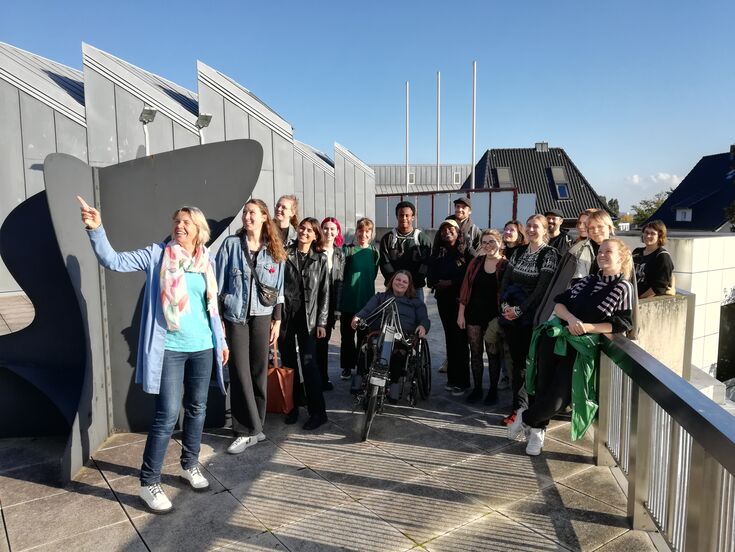Where could the city of Mönchengladbach improve its culture of remembrance? Are the honors paid to many historical personalities who shape the cityscape still appropriate from today's perspective? How and where can a critical examination of forms of discrimination be achieved?
Local politicians are looking for answers to these questions - and asked The Hochschule Niederrhein (HSNR) for support. Twenty-one Master's students in cultural education and cultural management set to work - and developed concrete proposals in project assignments. They recently presented their diverse ideas to Lord Mayor Felix Heinrichs and representatives from politics and culture. "We are concerned with making discrimination and inhuman attitudes visible in different contexts," says Prof. Dr. Andris Breitling, who heads the HSNR project "Remembrance Culture: Street Names."
The six groups from the Faculty of Applied Social Sciences proved just how multifaceted the topic can be. One, for example, examined how often streets are named after women and men. The conclusion: of around 2000 streets in Mönchengladbach, 300 were dedicated to men and only 53 to women. These were either noble, in the church - or came to their posthumous honor as "wife of...". Female scientists were not included.
Another idea: to create a place of remembrance that brings weavers, spinners and other long-forgotten groups of people from the textile industry back into consciousness. Information boards, artwork, monuments, statues, and benches could invite people to linger and learn more.
While another group has a huge mural on the façade of a house that illustrates Mönchengladbach's involvement in colonialism through the textile industry in mind, a multimedia guide with videos and audio clips could contribute to a lively tour of the city that introduces the namesakes of streets.
A podcast could, according to the students' vision, deal with the controversial personalities Otto von Bismarck and Paul von Hindenburg.
Another group is calling for the renaming of Hanns-Martin-Schleyer-Strasse. This is because long before his murder in 1977 by the RAF, Schleyer belonged to the Nazi Party during National Socialism and was an SS-Untersturm leader. Alternatively, the focus could be on Hilde Sherman, a Jewish Holocaust survivor born in Wanlo, according to the students' brainstroming.
An audio guide suitable for children could also make it possible to experience the life and work of various personalities of Mönchengladbach during the Second World War along a route, the project participants envision.
Now it's the city's turn: Will it find incentives in the ideas to implement them? "Since the political discourse is still in full swing and no decisions have been made yet, the students' suggestions are certainly interesting food for thought. With the methods presented for the culture of remembrance, the students have shown ways in which street names can be critically placed in their historical context. I am looking forward to further exchanges," says Mayor Heinrichs.


















